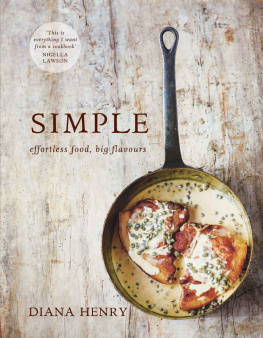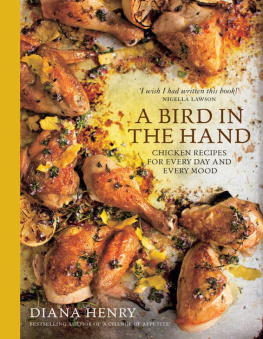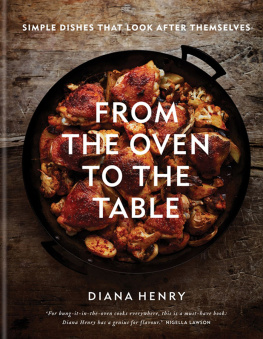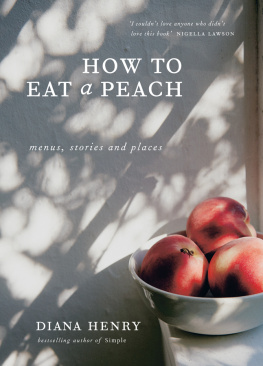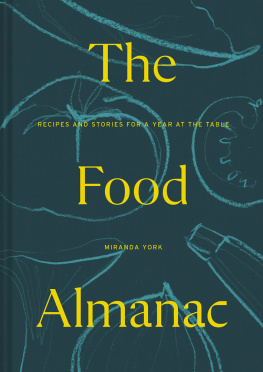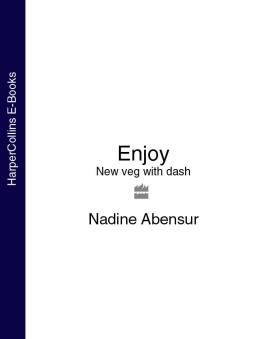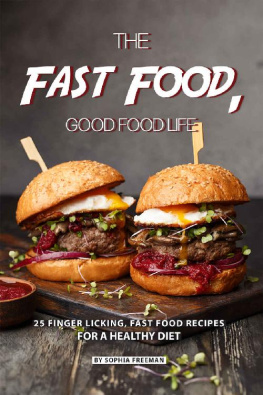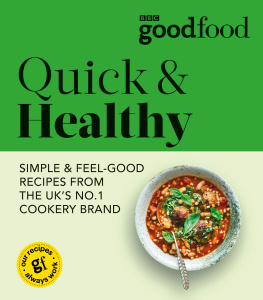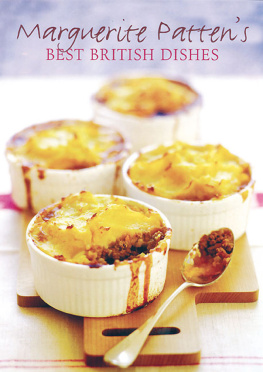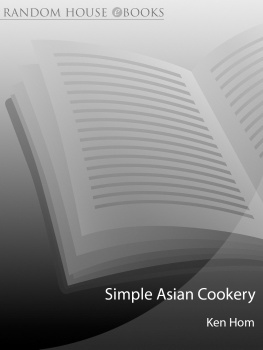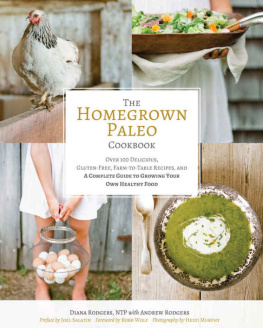introduction
Stand in any newsagent and look at the magazine covers. The advice on how to eat to fight cancer, to lose weight, to achieve glowing skin is all-pervasive. And a lot of it is telling you what you cant eat. We angst about food and health all the time and yet there is clearly something very wrong with the Western diet. Rates of obesity and type-2 diabetes are soaring; heart disease and cancer are commonplace.
Against this background I gradually realized that friends werent asking me for recipes for cakes any longer, but for advice on what to do with a tuna steak and how to cook quinoa. They wanted to eat more healthily, cook more vegetables, lose a bit of weight and cut their intake of red meat. When they told me what they were cooking trying to think of sixteen exciting things to do with turkey breast it sounded grim. Round about the same time, my doctor was urging me to get my blood pressure down and lose some weight. Perhaps I needed to take stock of my own eating as well.
I dont, by any stretch of the imagination, have a bad diet. I dont eat ready meals or fast food, though Ill admit to the occasional Indian takeaway. The only processed stuff in the house is canned tomatoes and beans and the odd packet of biscuits. But I love food. And I have a few weaknesses. One is sugar, particularly in pastries. There is not much I wouldnt do to get my hands on an almond croissant or a little tarte aux pommes at four oclock in the afternoon. I also love bread crusty baguette, rich, golden brioche as well as healthier whole grain loaves. (I may have been born in Ireland but Im clearly French. And refined carbohydrates are my btes noires.) So I decided to explore what a healthy diet actually is and come up with dishes that were so good (and good for you, too, but first of all delicious) that you wouldnt feel you were missing out.
My biggest problem was thinking about food in terms of healthy or unhealthy. I cant think of meals as sets of nutrients. A meal is a colourful assembly of foods many of which we dont quite understand in terms of health that should be, first and foremost, enjoyable. The term healthy does negative things to me (in fact I struggled with whether to put the word on the front of this book). It makes me think of miserable, beige food. It also smacks of preciousness. While at university, I briefly shared a house with a girl who was tremendously into healthy food. It was all nuts, seeds and little bowls of Iceberg lettuce. Not only was she one of the most joyless people I have known, she was also self-obsessed. (American journalist Michael Pollan uses the term orthorexia to describe an all-consuming and destructive interest in healthy food. He claims its a growing problem in the USA.)
Im much more into living life to the full than I am into thinking of my body as a temple. About ten years ago I wrote a book about dining pubs, for which I travelled the length and breadth of Britain, meeting great chefs and food producers. The joy and care with which they approached their food and their work was so life-affirming that it put me on a high every day of my journey. To fret about whether you are getting enough omega-3 and vitamin B when you eat seems to me the anxious, hand-wringing opposite of this.
I settled on two terms that I liked that would guide me. First, I was going to eat food that was accidentally healthy. It had to be delicious, healthiness was a bonus. Second, I was going to practice considered eating: find out what fats were okay; if I should be cutting down on cheese; whether whole grains were better for me so I would think about what I was consuming, but I wasnt going to be slavish.
My eating had already changed quite a lot, especially compared to the way I ate twenty years ago. There were a lot more vegetables and whole grains, the more robust the better. And I wasnt prepared to declare anything off limits. Food is one of the greatest pleasures in life, so I wouldnt advise anyone to completely give up steak with barnaise sauce or gratin dauphinoise. Just dont eat them very often (theyre rich anyway, so you wouldnt want to).
When I started to put together lists of accidentally healthy dishes, I found they were the kind I wanted to eat anyway. My love of Middle Eastern food goes way back, and thats a healthy place to start, but I also plundered the cuisines of Japan, Thailand and Vietnam.
As I cooked different dishes, I started to read about food and health as well. One of the very frustrating things about trying to eat healthily (and one reason why I had largely ignored it) is the competing claims, the superfoods, the misinformation. I read lots of stuff that was contradictory, discovered that some beliefs had long since changed (I really thought eggs were bad for your cholesterol, for example, though the thinking on that altered quite a long time ago) and got angry about how much we had been misled (go and read about all those healthy low-fat spreads we were encouraged to eat in the 1970s, they were way worse than the butter they were designed to replace).
How did I choose what advice to follow? Common sense and my own experience. (Theres an extensive bibliography in this book if you want to do your own reading.) Even my kids joined in. Telling them they had to cut down on sugar was one thing. Sitting them down in front of Robert Lustig (obesity expert and anti-sugar campaigner) on youtube was another. They started to understand why sugar wasnt good for them and why, contrary to what theyd been taught at school (which seems to lump all carbohydrates together), you dont need the white stuff for energy. Learning about sugar, and the negative impact its having on our diet and health worldwide, was the most fascinating and shocking research I did. The arguments as to why calorie counting doesnt work (I should know, Ive done enough of it) were convincing too, and I gradually understood the current thinking on fats and on phytochemicals, the compounds found in plants that may act upon our own biology.
I am not keen on nutritionism. Seeing foods just in terms of health for what they can potentially do for us rather than simply being delicious makes us all that much more anxious, and pressurizes us to buy things we dont need. Any food that has had something added, I leave on the shelf. These are functional foods, created in factories and sold by marketeers to take advantage of our worries. (You cant slap a sticker on a bunch of carrots, but theyll do you more good than a carton of carrot juice that has extras added.) But I was glad to find that some of the things I love such as roast tomatoes are good for you as well. (They contain lycopene, which appears to protect against heart disease and breast cancer.) Eventually I came up with answers about what was healthy (or at least what was probably healthy, as far as we actually know), as well as a collection of dishes I really loved.
The main thing you can do for good health is to eat proper home-cooked food, limit anything processed, really keep an eye on refined carbohydrates (especially sugar), switch to whole grains for at least some meals and up your vegetable intake.


